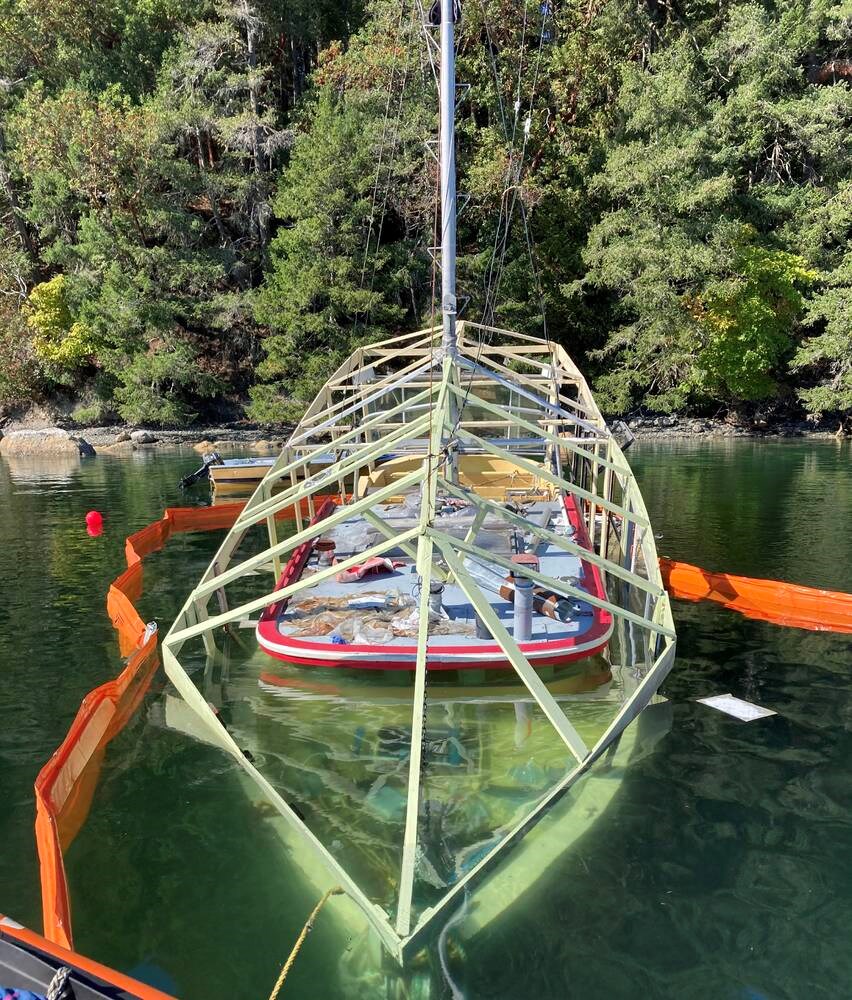The sinking of two boats in Brentwood Bay calls into question the federal government’s response in dealing with the growing problem of abandoned and dilapidated boats in B.C. waters, a local marine advocacy group says.
Last week, a yellow former fishing boat called Knot that more recently served as an illegal marijuana grow-op sank at the entrance to Tod Inlet. It spilled diesel fuel into the bay, prompting air-quality complaints from residents up to a kilometre away.
The boat was one of six problem vessels identified by the Saanich Inlet Protection Society this year. The group alerted the Canadian Coast Guard and Transport Canada about the dilapidated vessels in February. After an assessment, both agencies concluded that none of the boats met their criteria for preventative action.
The first boat sank shortly thereafter.
“How wrong can an assessment be?” said Michael Simmons, vice-chair of the Saanich Inlet Protection Society.
The issue of abandoned and derelict boats is not confined to local waters. There are an estimated 4,000 boats that fit that description in the waters off B.C.
It’s not that there are no protections in place. After years of lobbying, the Wrecked, Abandoned and Hazardous Vessels Act came into effect in 2019 to address the concerns of mariners and local governments.
But Simmons calls the act “toothless.”
“The sinking of two vessels in the bay this summer shows the act has had no effect,” he said. “The laws are in place, but the will to enforce them has to come from the top.”
Other levels of government are already contributing to marine cleanup efforts. This year, the B.C. government earmarked $9.5 million for Clean Coast, Clean Waters, an initiative to fund projects aimed at cleaning up the shoreline, including the removal of 100 derelict boats.
If the problem is a lack of funding to ensure compliance, Simmons said the answer may be as simple as charging a fee to obtain a licence. While all vessels powered by an engine with 10 or more horsepower (7.5 kW) are required to have a pleasure craft licence, there is no charge to obtain one.
Some jurisdictions, such as Washington state, charge a fee for licensing. The revenue from licensing fees goes in part towards the cost of removing derelict boats before they become a navigation hazard or harm the environment.
parrais@timescolonist.com



